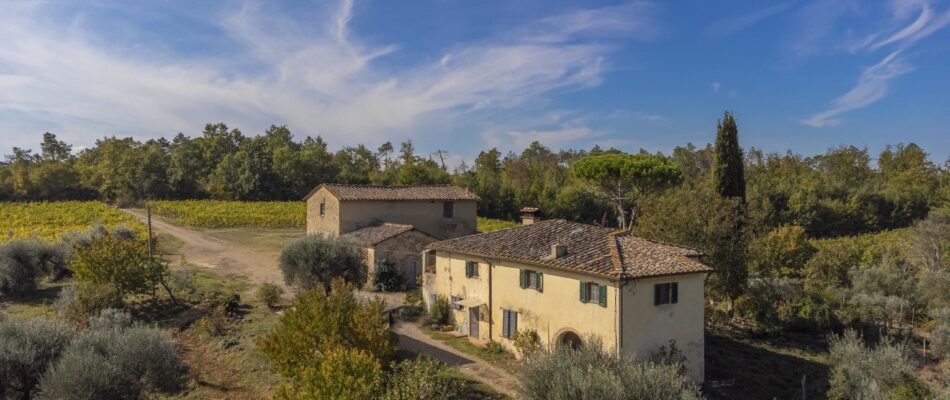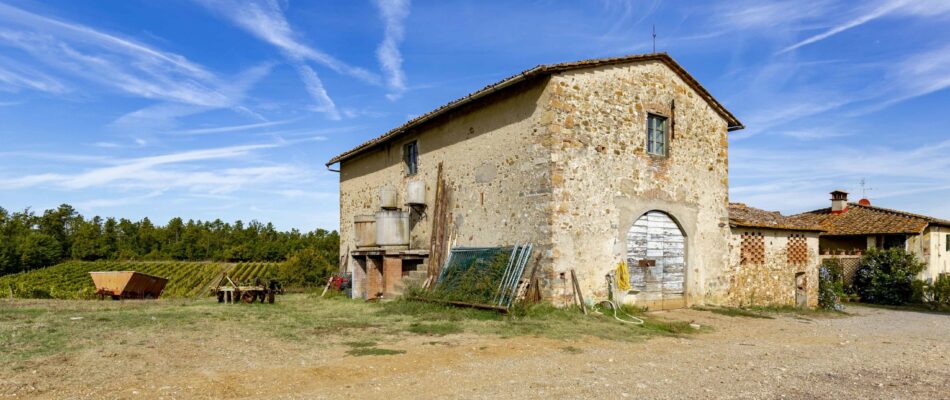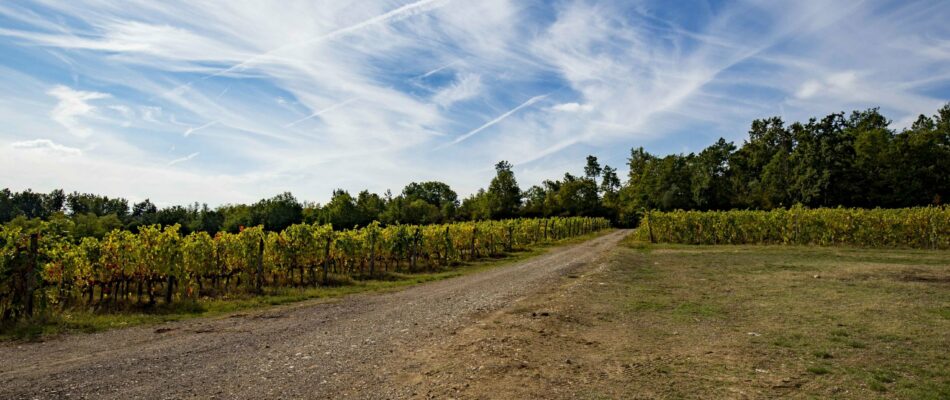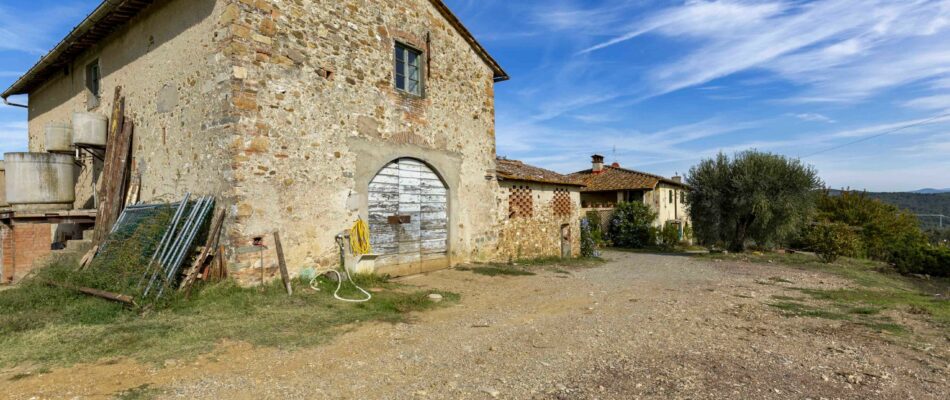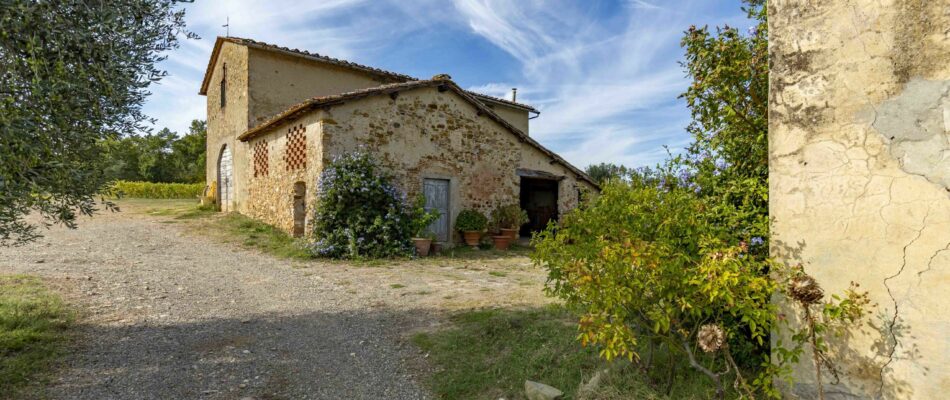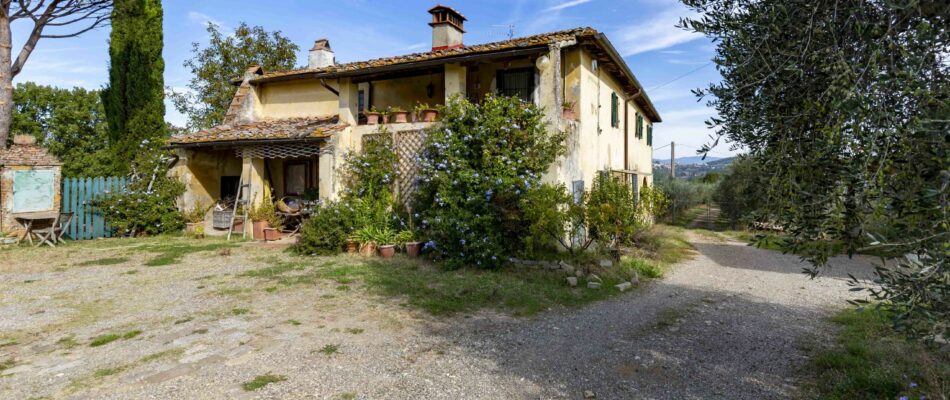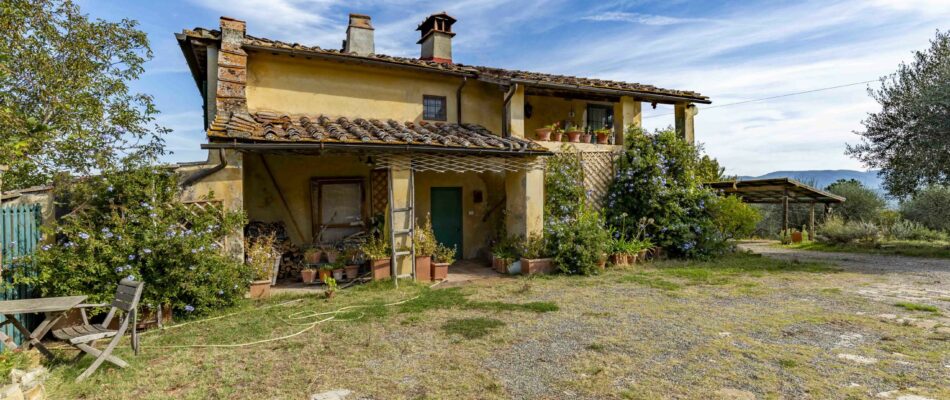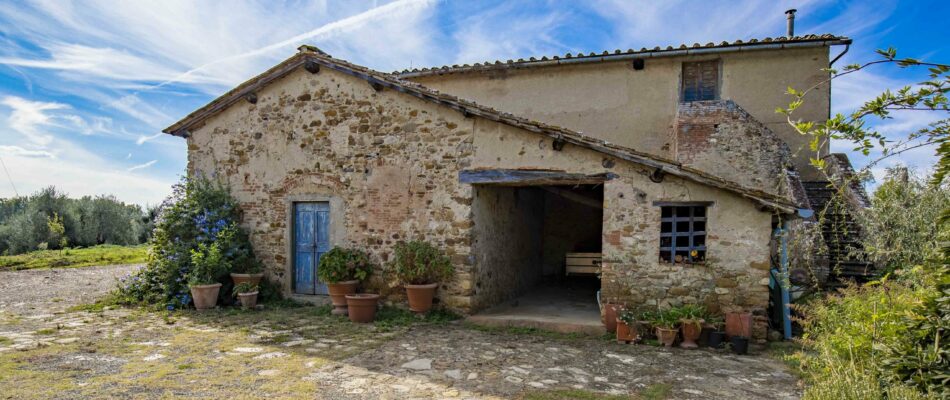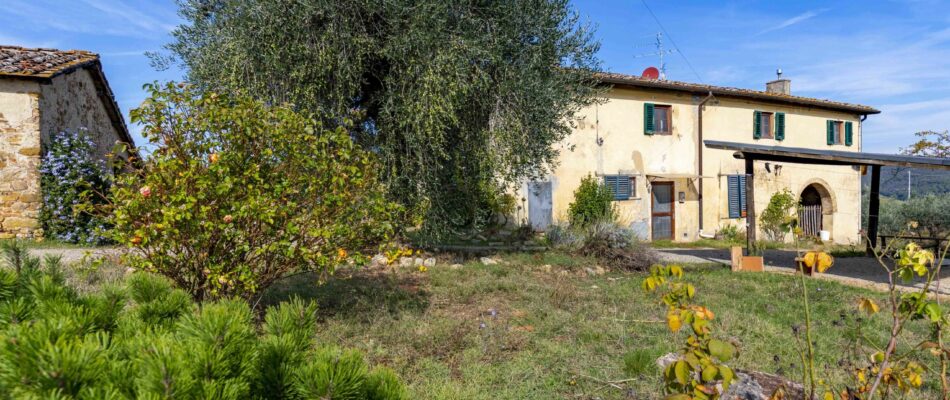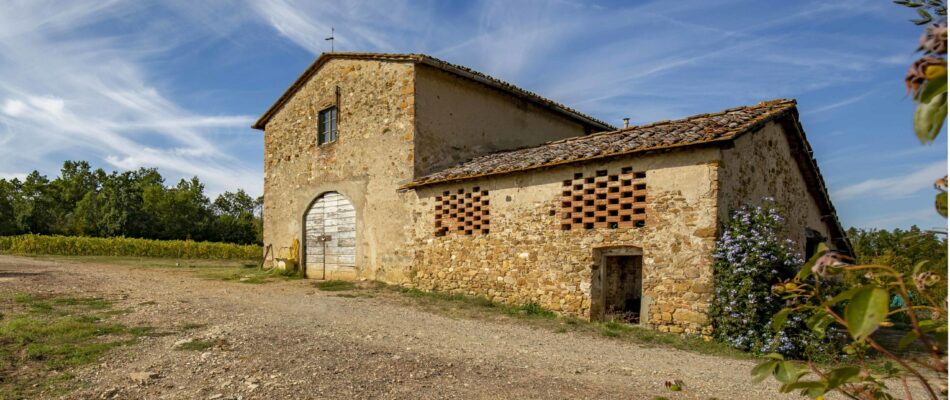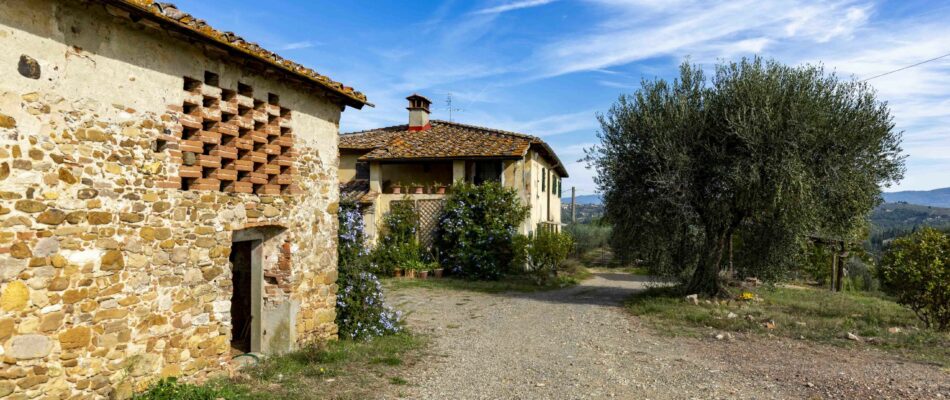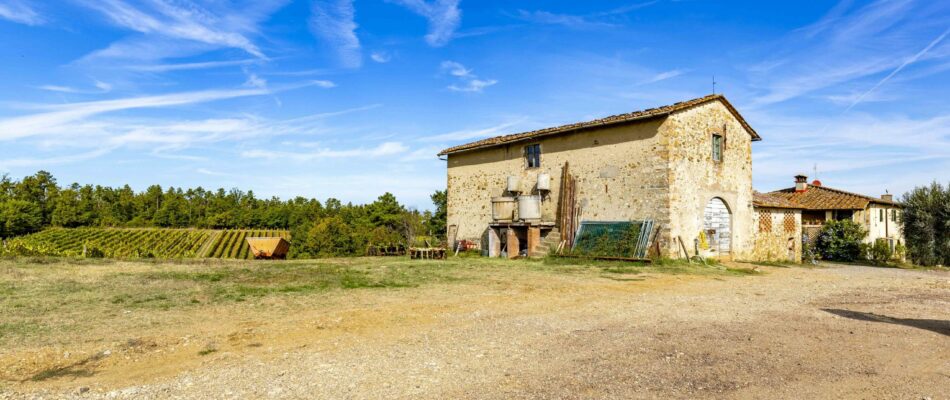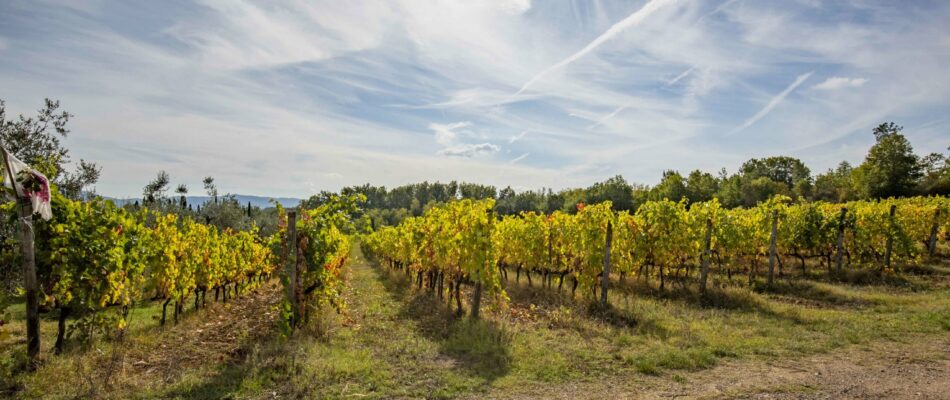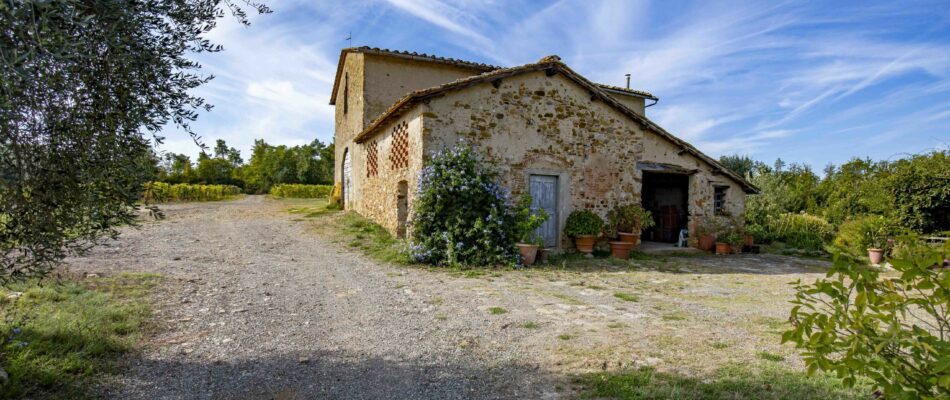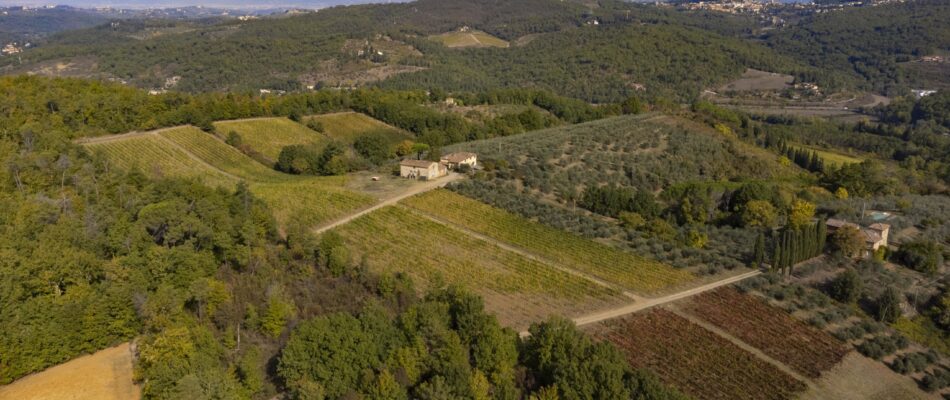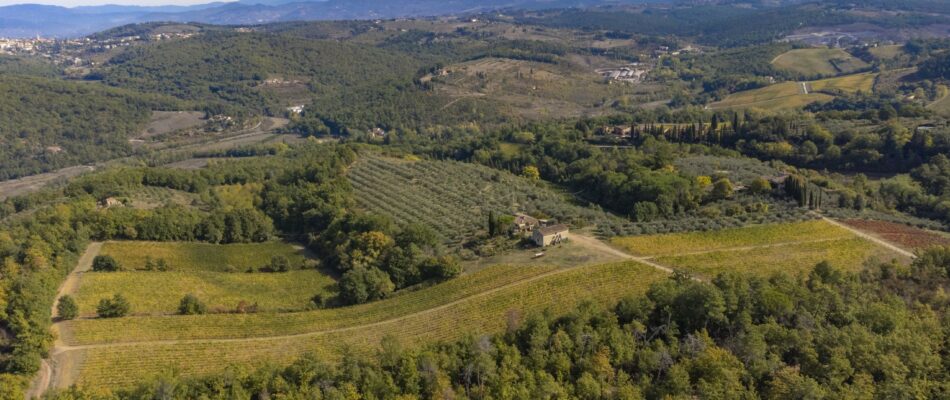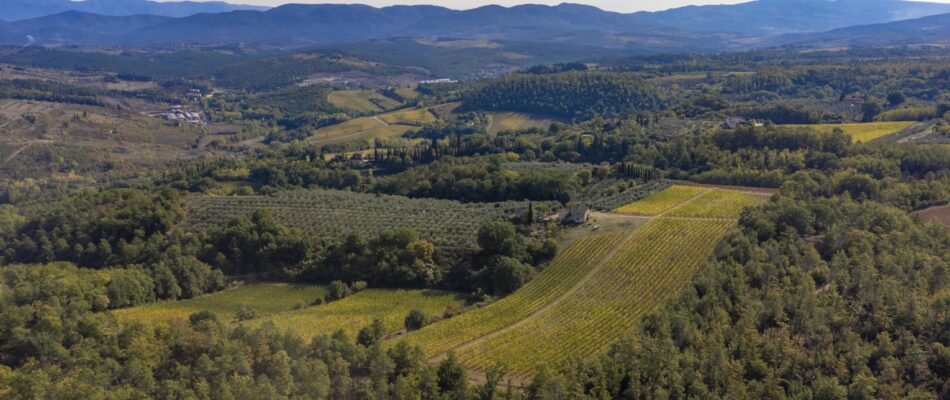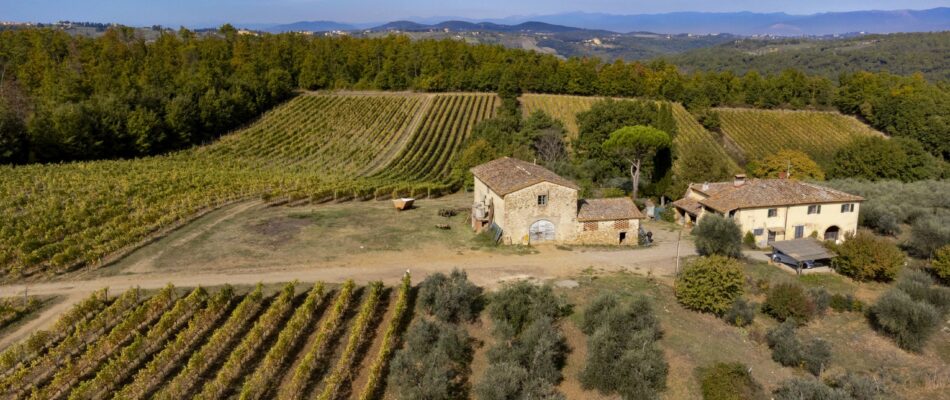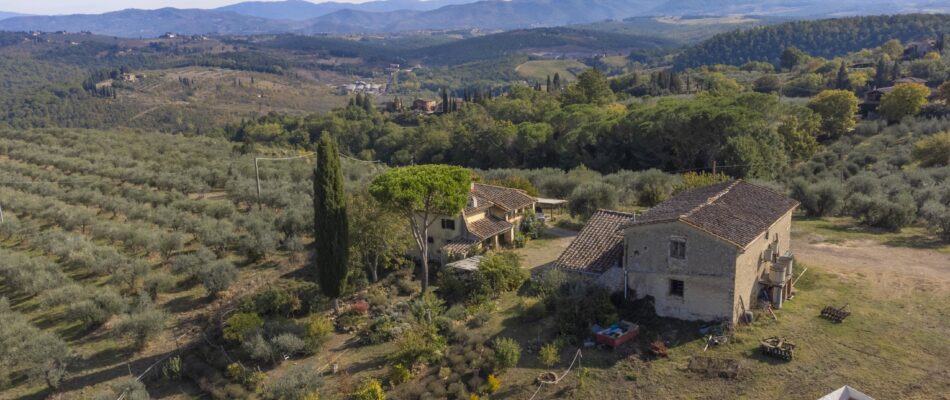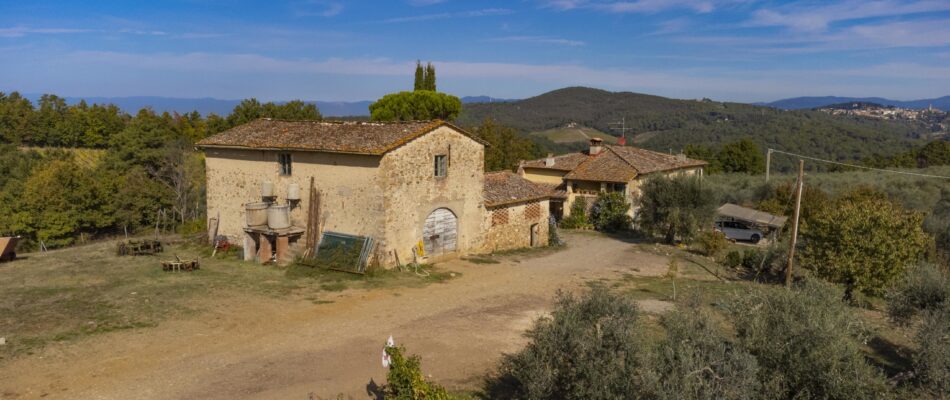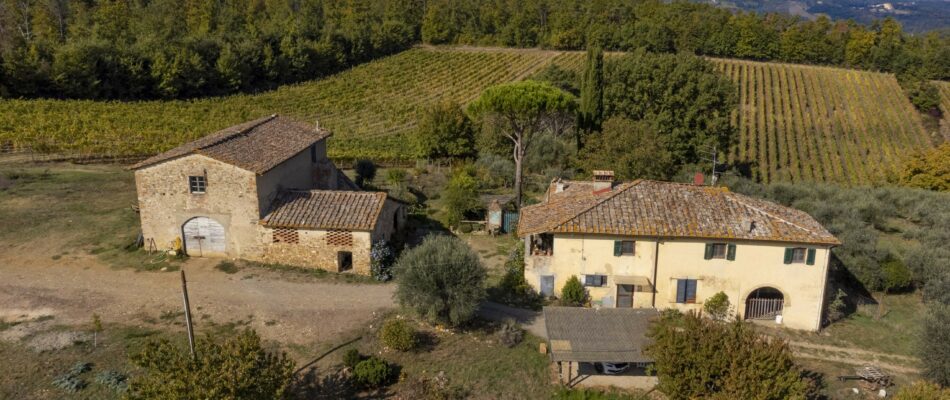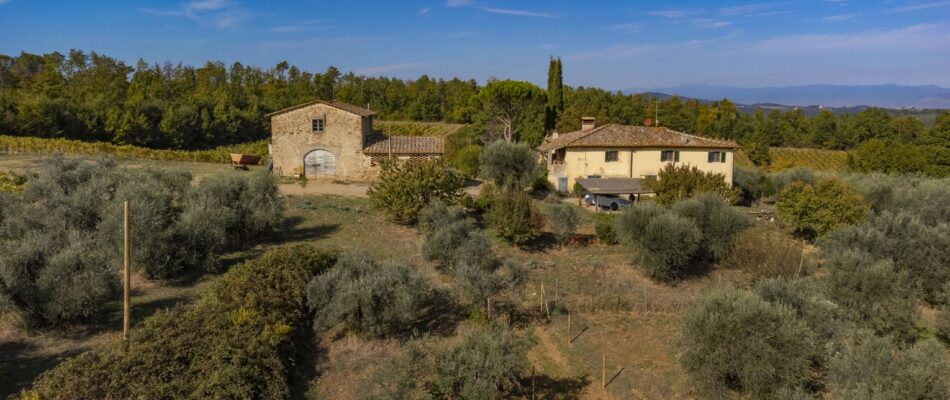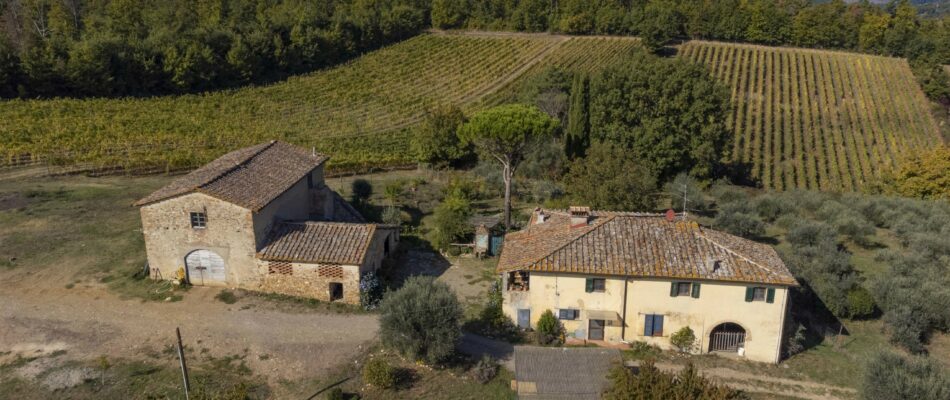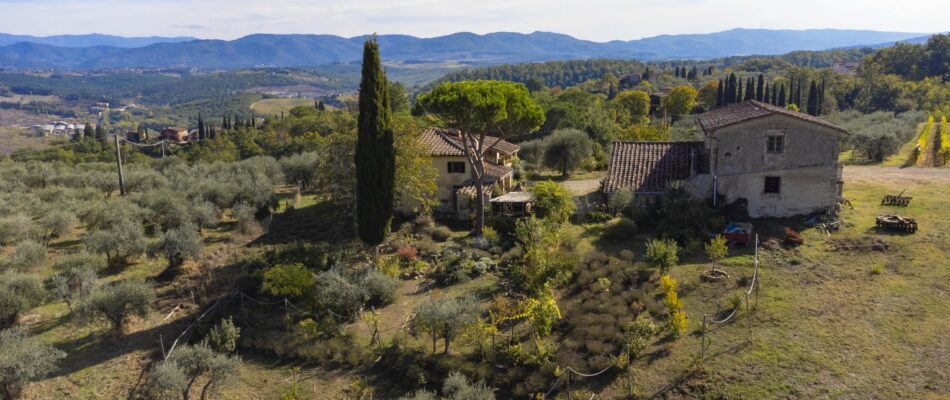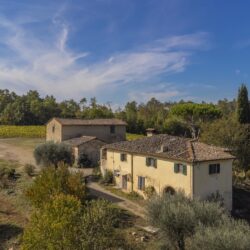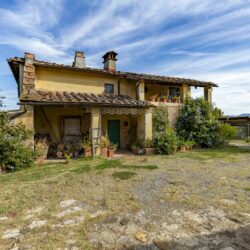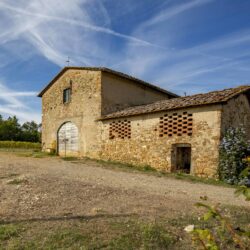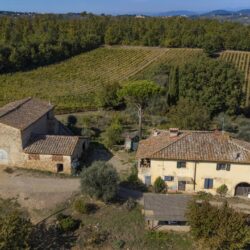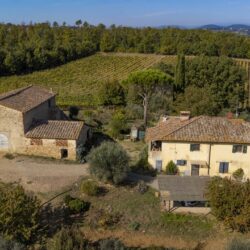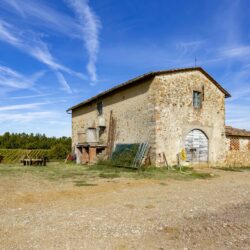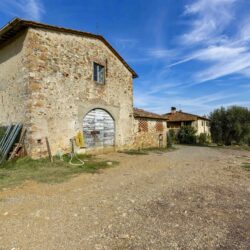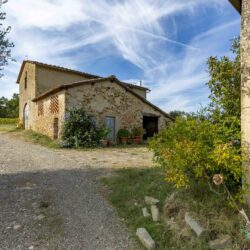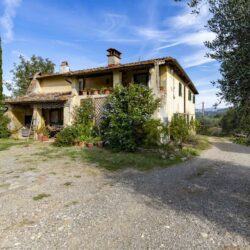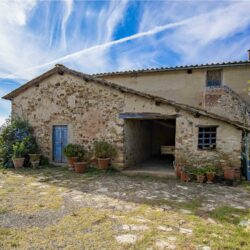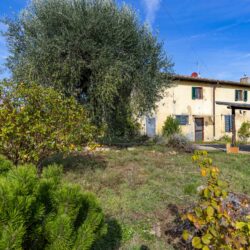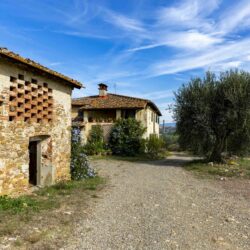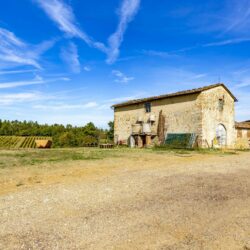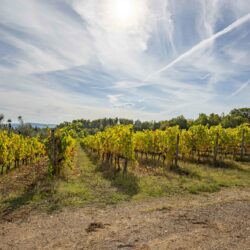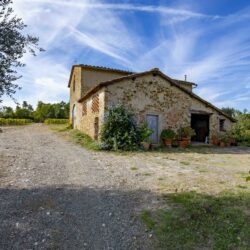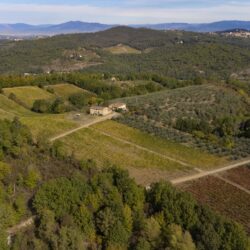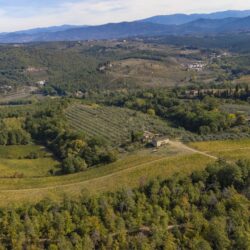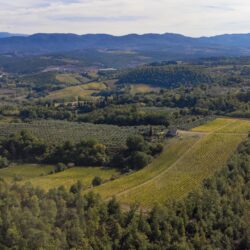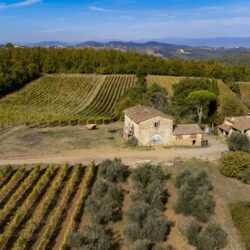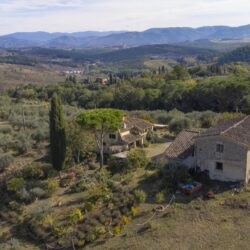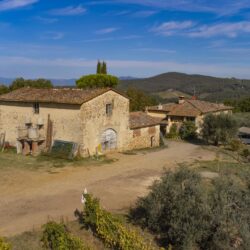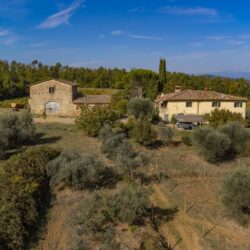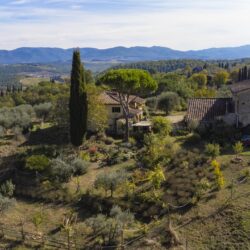ITALY, TUSCANY, FLORENCE, SAN CASCIANO VAL DI PESA
Near Casciano Val di Pesa, a charming farmhouse in part to be restored composed of two separate units for a total of about 480 square meters surrounded by its private land of 7.5 hectares, producing fine olive oil and excellent wine. A dream of a farm just a few kilometres from Florence.
Location
Mercatale in Val di Pesa, 14 km from the historical centre of Florence. Vineyards and olive groves producing fine wines and oils have always covered this fascinating area.
Small villages, parish churches and castles of great cultural and historical interest feature in this countryside.
Description
Leaving the main road, we take a well-maintained white road slightly uphill through the gentle, romantic Tuscan hills expertly planted with olive trees and vines. As soon as you get to the top of a small hill, your gaze opens up to the valley. The farmhouse is beautifully exposed and the atmosphere you breathe is that of genuine country life.
Two separate buildings, a short distance apart, are intended for residential use for about 250 square meters, the other for about 281 square meters is currently used as a garage for agricultural machinery, suitable for a possible transformation into a winery, storage and aging.
The stone farmhouse is enhanced by a beautiful loggia from which you can enjoy a beautiful view of the countryside and consists of two floors.
On the ground floor there is a large kitchen, living room and three bedrooms, two of which are double bedrooms, as well as a bathroom.
On the second floor, passing through the independent loggia entrance, you reach the large living room, the kitchen and the panoramic and bright dining area. On the same floor there are three large double bedrooms with two bathrooms and a large hallway.
The annex of 281 sqm is a large space that lends itself to various uses, currently managed as a shelter for agricultural tools and storage.
Outdoor spaces
The house is surrounded by its own land of 7.5 hectares of Chianti Classico DOCG vineyard and approximately 800 olive trees. The whole property is fenced and well exposed to the sun.
State and finishes
The whole property needs some maintenance works even if the residential part is currently livable and in good condition. The facade is the typical Tuscan stone facade, the interiors are rustic, the floors are terracotta, the fixtures and fittings are wooden like the internal doors.
We are in Tuscany and every detail reminds us that we are in the heart of Chianti Classico.
Potential use
The farm is not yet at its maximum production potential. It is possible to create a modern wine cellar, a tasting area and direct sales. The residential part of the property could be transformed into accommodation or used to accommodate a family that intends to produce excellent wine and oil.
